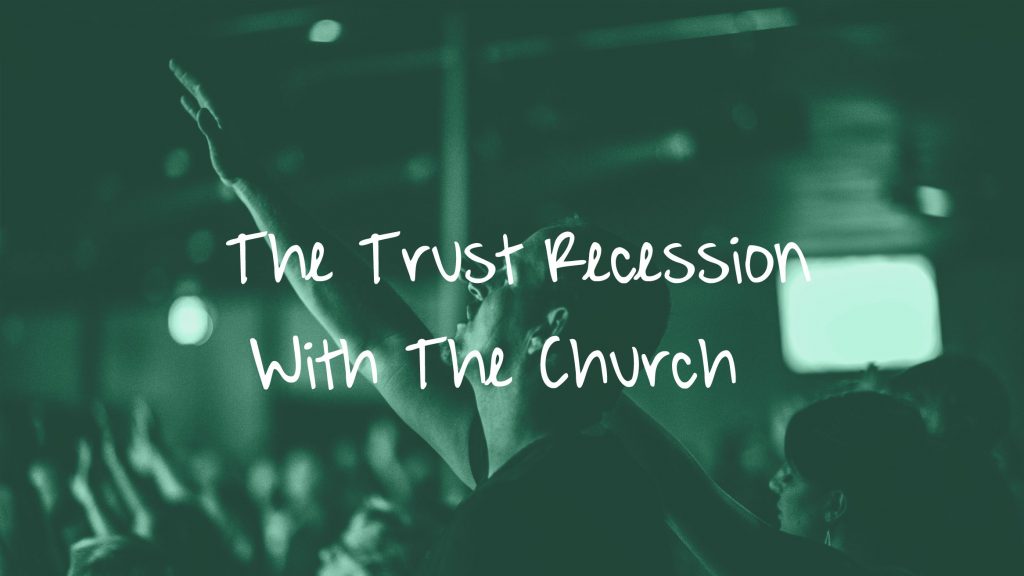I appeal to you therefore, brothers, by the mercies of God, to present your bodies as a living sacrifice, holy and acceptable to God, which is your spiritual worship (Romans 12:1, ESV).
The Gallup Poll began tracking U.S. adult confidence in the church as an institution in 1973.
According to their numbers, the church suffered a five percent loss in confidence in 2021 and a six percent loss so far this year. An economic recession has been historically defined as two months of falling GDP (Gross Domestic Product).
The church has had not two months but two years – the trust recession in the church has been brutal.
Numbers can be twisted and turned, as we witness the media doing so now with the reported past two months of falling GDP in the United States. Is it a recession or not? And the debate continues with Republican and Democratic leaders offering the expected differing opinions.
Gallup also reports that confidence in the church reached a high point in 1975 with 68 percent of Americans trusting the church compared to 31 percent today. The churches “trust recession” has been ongoing for 47 years!
The only good news… I think… is that newspapers who ridicule the church have only a 16 percent trust rating while Congress lists at 7 percent!
Why a “trust recession” with the church?
First, the Bible’s prophetic prediction that in the end-times, good will be called evil and evil good (Isaiah 5:20). Culturally, it’s happening now, and a church standing for truth will take an obvious hit in popularity.
In his book entitled, Live No Lies, John Mark Comer writes…
Most people today want nothing to do with faith in the public square. The church is seen as part of the problem, not the solution. What’s more, with the radical moral reversal around human sexuality, gender, and the life of the unborn, we now have the moral low ground in many people’s eyes; Jesus’s vision of human sexuality is perceived as immoral by a large swath of the population.
The Apostle Paul describes this latter-day “spirit of the age” with these words…
The time is coming when people will not endure sound teaching but having itching ears, they will accumulate for themselves teachers to suit their own passions and will turn away from listening to the truth (2 Timothy 4:3-4).
However, evil dominated the culture in the first few centuries of the church, yet the church thrived. What is the difference between the church living closer to Biblical times and the church today in modern times?
This leads to a second reason for the “trust recession” in the church – we have forgotten the benefits of a sacrificial lifestyle.
Or we walk the talk when our talk of holiness is reflected in a lifestyle of peace.
The early century church assumed that if you were baptized it could be a death sentence – yet the radicalness of their faith offered a hope not found in the bankrupt philosophies of that age.
The church grew – some scholars say at a rate of 40 percent per decade!!!!!
In those centuries, the church stood against differing ideas of sexual identity while promoting the marriage of male/female in a lifetime commitment. The early church didn’t join pagan festivals. They were generous. They lived for fellowship and worship.
And the Lord added to their numbers daily. It’s easy to trust the authenticity of a sacrificial life.
As Paul said, “I urge you to present yourselves as a living and holy sacrifice.”

